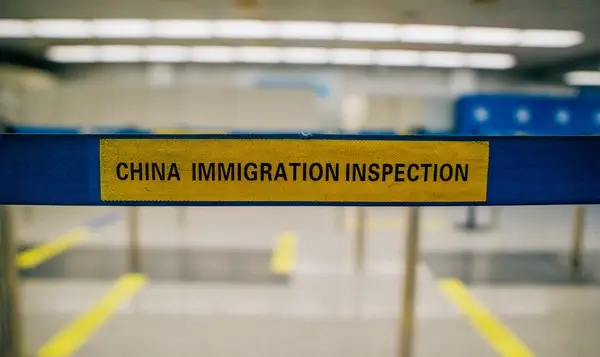Table of Contents
- Historical Context
- Causes of Immigration
- Types of Immigration
- The Process of Immigration
- Consequences of Immigration
- Integration and Assimilation
- Future Trends in Immigration
- Conclusion
Immigration is a complex and multifaceted phenomenon that has shaped human societies for centuries. It involves the movement of people from one country to another, often driven by a combination of factors including economic opportunities, political stability, social networks, and personal aspirations. This overview seeks to provide a comprehensive understanding of immigration from a sociological perspective, examining its causes, processes, and consequences. By exploring these aspects, we can better appreciate the intricate dynamics that influence migration and its impact on both sending and receiving societies.
Historical Context
Early Human Migrations
Human history is characterized by a series of migrations. Early human migrations were often driven by the search for food, safety, and more hospitable climates. As hunter-gatherer societies transitioned to agrarian economies, the patterns of migration changed, leading to the establishment of permanent settlements and the rise of civilizations.
Colonialism and Industrialization
The era of colonialism marked a significant phase in global migration patterns. European powers expanded their territories, resulting in the forced migration of millions through the transatlantic slave trade and the voluntary migration of settlers seeking new opportunities. The Industrial Revolution further accelerated migration, as people moved from rural areas to urban centers in search of employment. This period also saw significant international migration, with individuals moving across continents in pursuit of better economic prospects.
Causes of Immigration
Economic Factors
Economic motivations are among the most prominent drivers of immigration. Individuals often migrate to improve their living standards and secure better job opportunities. Economic disparities between countries create a pull factor, attracting migrants to wealthier nations with higher wages and better employment prospects. Conversely, economic instability, unemployment, and poverty in the home country act as push factors, prompting individuals to seek opportunities abroad.
Political Factors
Political instability, conflict, and persecution are critical factors influencing migration. Refugees and asylum seekers flee their home countries to escape violence, human rights abuses, and political oppression. Political factors can also include changes in immigration policies and international relations, which may either facilitate or restrict the movement of people across borders.
Social and Environmental Factors
Social networks and family reunification play a significant role in migration decisions. Individuals are more likely to migrate to countries where they have family or community connections, providing social support and easing the integration process. Environmental factors, such as natural disasters, climate change, and resource scarcity, also drive migration. These conditions can render regions uninhabitable, forcing people to relocate in search of safer and more sustainable living conditions.
Types of Immigration
Voluntary vs. Involuntary Migration
Immigration can be classified into voluntary and involuntary migration. Voluntary migrants move to another country by choice, often driven by economic, educational, or personal reasons. In contrast, involuntary migrants, such as refugees and asylum seekers, are compelled to leave their home countries due to conflict, persecution, or natural disasters.
Legal vs. Undocumented Immigration
Legal immigration refers to the movement of individuals who enter and reside in a country through official channels and with proper documentation. Undocumented immigration involves individuals who enter or remain in a country without legal authorization. Undocumented migrants often face precarious living conditions and limited access to services and protections, making them vulnerable to exploitation and abuse.
The Process of Immigration
Pre-Migration Phase
The decision to migrate is influenced by a combination of push and pull factors, as well as personal circumstances. During the pre-migration phase, individuals gather information about potential destination countries, weigh the risks and benefits, and make plans for their journey. Social networks and technology play crucial roles in this phase, providing migrants with information and support.
Migration Journey
The migration journey can be fraught with challenges and uncertainties. Migrants may face physical and legal obstacles, such as border controls, restrictive immigration policies, and hazardous travel conditions. The journey can also be emotionally and psychologically taxing, as individuals leave behind familiar environments and face the unknown.
Post-Migration Phase
Upon arrival in the destination country, migrants undergo a process of adaptation and integration. This phase involves navigating new social, cultural, and economic landscapes, learning the language, finding employment, and establishing social connections. The degree of integration varies among migrants, influenced by factors such as legal status, social networks, and the receptiveness of the host society.
Consequences of Immigration
Economic Impact
Immigration has significant economic implications for both sending and receiving countries. In receiving countries, migrants often fill labor shortages, contribute to economic growth, and bring diverse skills and perspectives. However, concerns about job competition and wage suppression can lead to tension and conflict. In sending countries, remittances from migrants can provide vital financial support to families and communities, but the loss of skilled labor can hinder economic development.
Social and Cultural Impact
Immigration contributes to the cultural diversity and dynamism of societies. Migrants bring their traditions, languages, and cultural practices, enriching the social fabric of the host country. This cultural exchange can lead to greater tolerance, innovation, and creativity. However, it can also pose challenges to social cohesion and identity, particularly when cultural differences are perceived as threats to national values and norms.
Political Impact
Immigration can influence political landscapes in both sending and receiving countries. In receiving countries, immigration often becomes a contentious political issue, shaping public opinion and policy debates. Political parties and movements may emerge in response to perceived threats or opportunities associated with immigration. In sending countries, diaspora communities can play significant roles in political and social movements, influencing governance and development.
Integration and Assimilation
Get the full article AD FREE. Join now for full access to all premium articles.
View Plans & Subscribe Already a member? Log in.





